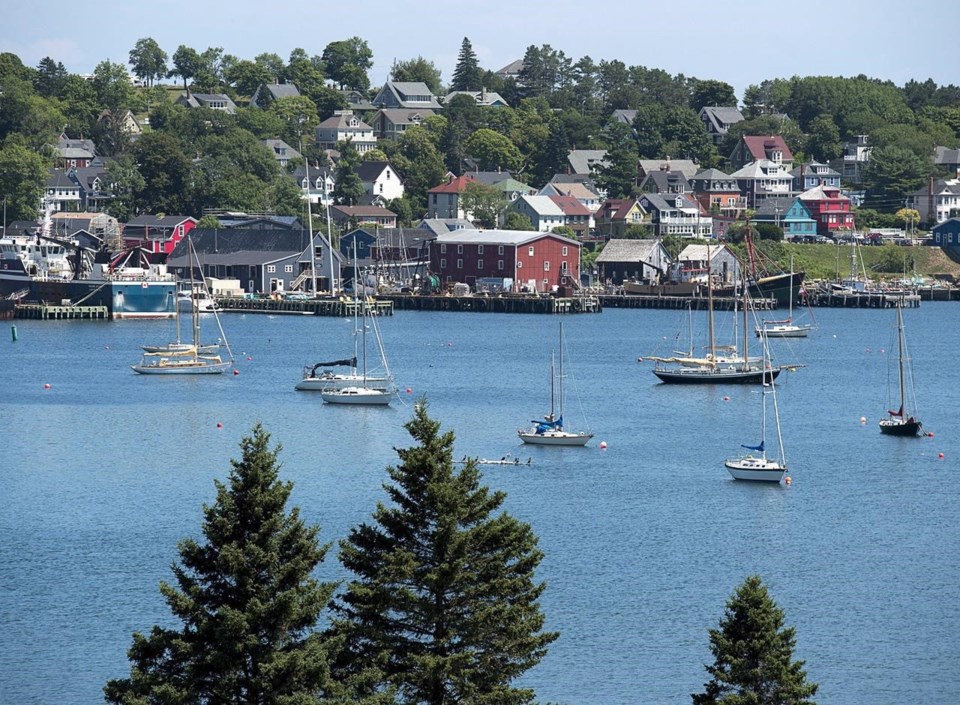HALIFAX — When an anti-racism committee in Lunenburg, N.S., recommended last year the renaming of Cornwallis Street — which honoured a colonial governor who issued a bounty on the scalps of Mi'kmaq people — the expectation was the new name would be tied to the area’s Indigenous history.
Instead, the town council voted last week to rename it Queen Street, a decision the mayor now says he expects to be overturned.
“Let's accept the fact that we've got this wrong," Lunenburg Mayor Jamie Myra said in an interview Tuesday. "We made some mistakes .… We've got to go back to the drawing board."
Natteal Battiste, a member of the Wasoqopa’q (Acadia) First Nation band council, called the decision to change Cornwallis to Queen disappointing.
“It would be nice to see the name replaced by either a Mi’kmaq word or person,” she said in an email, adding such a move would be in the spirit of the Truth and Reconciliation Commission.
She added that E'se'katik, the original name for Lunenburg in Mi’kmaq, which means “place of clams,” would have been a good choice. She represents Mi'kmaq communities in the Lunenburg area but said she was never consulted about the new name.
The South Shore town council announced in January 2023 the street name Cornwallis would be changed following recommendations from a Lunenburg anti-racism committee.
Edward Cornwallis, who founded Halifax, earned a reputation for brutality after he issued a bounty for the scalps of Mi'kmaq men, women and children in 1749. A statue of him in a Halifax park was taken down in 2018, and a Cornwallis Street in the provincial capital was renamed this year to honour Mi'kmaq activist Nora Bernard.
Lunenburg decided to conduct an online survey of residents in February, with most of the nine proposed names tied to Mi'kmaq culture. They included E'se'katik; Gta'n, the Mi'kmaq word for ocean; Kluskap, a spiritual figure for Indigenous peoples in New England and Atlantic Canada; Matlot, the Mi'kmaq word for sailor; and Merligueche, the Mi'kmaq word for "whitecaps that topped the waves."
However Queen Street was also an option, and when the choices of the 342 respondents were tallied, it came out on top with 35 per cent of the votes.
Myra, whose mayoral term began after the survey was circulated, said he feels Queen should never have been an option. “The process was flawed,” he said. “Putting eight Indigenous names and one non-Indigenous name on a ballot didn't help the situation.”
Despite his apprehensions, Myra said he felt compelled to support the results of the choice that won the survey, and he was one of four council members who voted in favour of Queen Street last week. Three councillors voted against the name.
Margie Knickle, a resident who was a member of the anti-racism committee that recommended the name change, said she’s extremely disappointed by the decision to replace one colonial street name with another. Knickle says the move shows how out of touch the town is about what reconciliation means.
“We really missed the mark here. I mean it really shows how disconnected we are to even consider ‘Queen’ and not understand the colonial connection,” she said in an interview Tuesday.
Myra said council will vote next week on amending the name decision, and from there they will restart the process to select a new name.
“I don’t know what that process is going to look like, but my goal would be to have some public input and some input from the Indigenous community,” he said. He hopes the new name will be presented to council for a vote in late February or March.
This report by The Canadian Press was first published Dec. 5, 2023.
Lyndsay Armstrong, The Canadian Press



